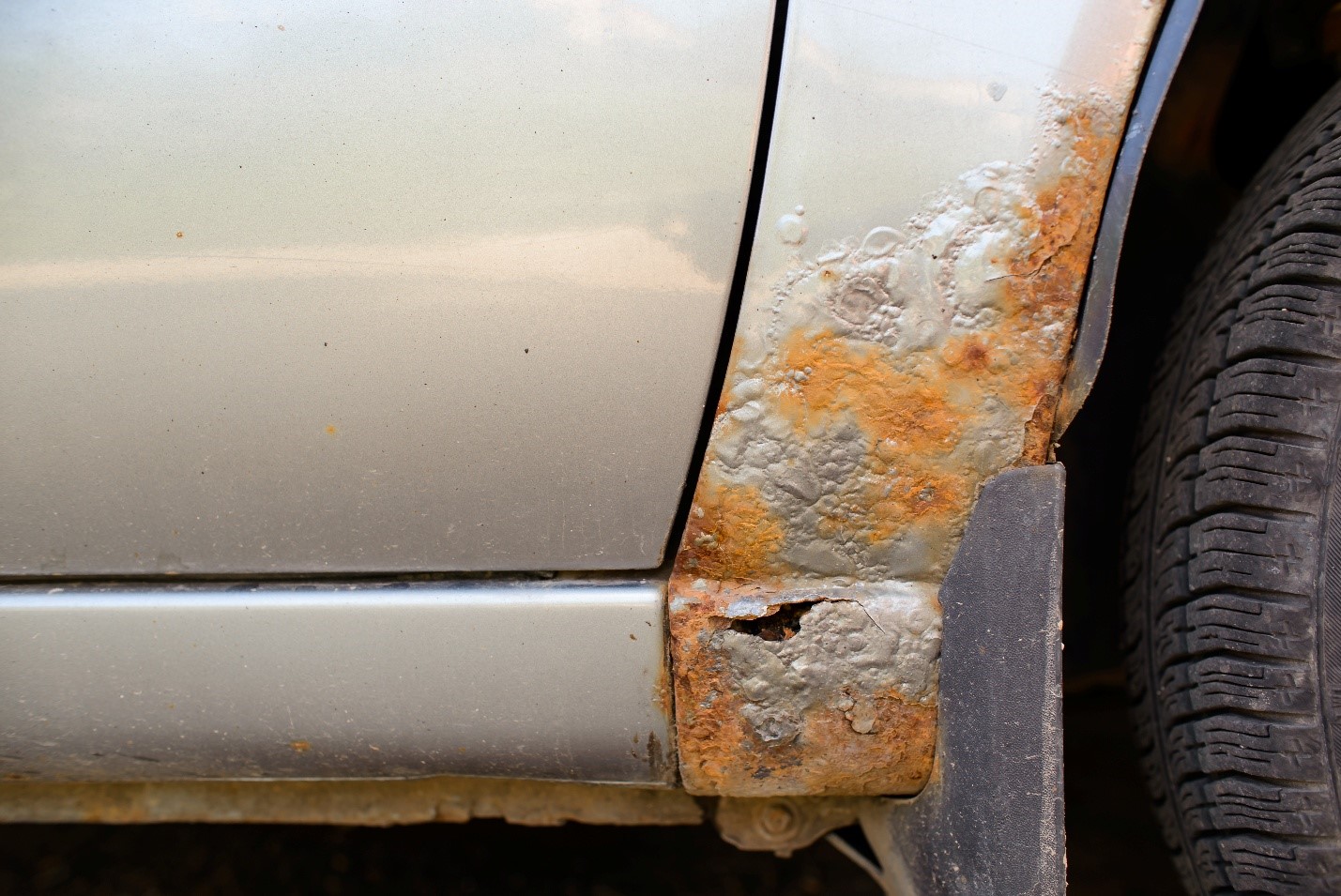
The Economics of Owning a Car: A Comprehensive Guide to Real Costs and Smart Savings
Owning a car is often considered a rite of passage, a symbol of independence, and a practical necessity in many parts of the world. But behind the convenience and mobility lies a complex financial commitment that goes far beyond the initial purchase price. Understanding the economics of car ownership is essential for anyone looking to make informed decisions, avoid financial pitfalls, and optimize their transportation budget.
This blog will help reveal the full spectrum of costs associated with owning a car, right from the upfront expenses to long-term financial implications, and offer practical strategies to help you save money while maintaining mobility.
Last Updated: September 23, 2025

Disclaimer: I am not a licensed financial advisor, financial planner, tax professional, or attorney. The information provided in this blog is for general informational and educational purposes only and should not be construed as professional advice. Always consult with a qualified expert before making financial, legal, or tax-related decisions.
1. Initial Purchase Price: More Than Just the Sticker Shock
The first cost most people encounter and often focus on is the purchase price. In the excitement of buying a new car, it’s easy to overlook the financial responsibilities that come after the sale.
Many buyers are so caught up in the thrill of ownership that they avoid thinking about long-term expenses such as maintenance, insurance, and repairs. As a result, they walk into the showroom unprepared, without a clear plan or budget for ongoing car care. This lack of foresight can lead to financial strain and unexpected expenses down the road.

However, the actual amount you pay for a vehicle goes well beyond the base sticker price. Several additional components may contribute to the final cost:
- Base vehicle cost: This may vary depending on the body style, such as sedan, SUV, or truck, included features, and current market demand.
- Sales tax: Depending on your location, this can add anywhere from 5% to 10% to the total purchase price.
- Registration and title fees: These mandatory charges may differ from state to state or province and are required by law to operate the vehicle.
- Dealer fees: Often overlooked, these may include documentation, delivery, and preparation charges that can significantly increase the final bill.
- Optional add-ons: Extended warranties, service plans, and accessories. These may all be tempting and can quickly inflate the overall cost.
To avoid surprises, always request a detailed breakdown of the “out-the-door” price. This can help ensure you understand the full extent of your financial commitment. You will need to understand this before signing any paperwork, which can help you budget for your purchase.
2. Fuel Costs: A Recurring Expense That Adds Up
Fuel is one of the most consistent and unavoidable costs of car ownership. It may vary and be influenced by:
- Fuel efficiency: Measured in miles per gallon (MPG) or liters per 100 kilometers (L/100km).
- Driving habits: Speeding, idling, and aggressive acceleration may reduce efficiency.
- Fuel type: Regular, premium, or diesel may have different grades and price points.
- Geographic location: Taxes and supply chains may affect regional fuel prices.
To ensure optimal performance and efficiency, it’s important to consult your vehicle’s owner’s manual. It provides essential information such as the recommended tire pressure, appropriate fuel type, and the specific oils and fluids required for your car.
Unlock your financial freedom.
Download this FREE eBook!.
How to make $100,000/month? Stop being average and think big.
Yes, this eBook is Free. Just drop your email to get instant access. It will be sent to your email.
How To Make $100 A Day – 23 Real Ways To Make Extra Money
16 Best Ways To Get Paid To Read Books in 2025
How To Become Rich – Strategies To Become Wealthy
18 Passive Income Ideas To Earn $1,000+ Each Month
Best Rewards Credit Cards For 2025 | What You Need To Know
Subscribe for exclusive insights
PLUS: Get Access to exclusive financial tips, learn everything about money and get early blog updates – delivered directly to your inbox .

In addition to following these guidelines, you can reduce fuel costs by using fuel comparison apps to find the best prices in your area. Adopting fuel-efficient driving habits such as coasting when possible, accelerating smoothly, and avoiding aggressive handling can help further improve mileage and lower your overall expenses.
3. Maintenance and Repairs: The Long-Term Reality
Routine maintenance is essential for ensuring both the safety and longevity of your vehicle. While some costs are predictable, others can catch you off guard if you’re not prepared. Here are some common maintenance expenses to consider:
- Oil changes: Depending on your vehicle type and driving conditions, oil changes may be needed every 3,000 to 5,000 miles. Always refer to your owner’s manual for the recommended interval.

- Tire rotations and replacements: Tires can wear unevenly, especially if not rotated regularly. Neglecting this can lead to premature replacements and compromised handling.
- Brake servicing: Brake pads and rotors wear down over time and may require replacement, often costing $800 or more per axle, depending on labor and parts.
- Battery replacement: Most car batteries last between 3 and 5 years, but extreme temperatures and frequent short trips may shorten their lifespan.
- Fluid replacements: Transmission fluid, coolant, and brake fluid may need periodic changes to maintain optimal performance and prevent internal damage.
Beyond routine upkeep, unexpected repairs such as a failed transmission or engine malfunction can easily cost several thousand dollars. These major issues often arise without warning and can place a significant strain on your budget.
Older vehicles, in particular, tend to require more frequent attention, as components wear out and spare parts become harder to source. As a result, repair bills for aging cars are typically higher, both in terms of labor and materials.
To avoid financial surprises, consider setting aside a monthly maintenance fund and strictly following the manufacturer’s recommended service schedule. Proactive care not only saves you money but also can extend the life of your vehicle.
4. Insurance Premiums: Mandatory and Variable
Auto insurance is legally required in all states, and costs may vary based on:
- Driver profile: Age, driving history, and credit score.
- Location: Urban areas may tend to have higher premiums due to traffic conditions and potential for theft.
- Vehicle type: Sports cars and luxury vehicles may usually cost more to insure.
- Coverage level: You may want to zero in on your options: Liability-only vs. full coverage.
- Annual mileage: More driving may potentially be considered a higher risk.
You may want to compare quotes from multiple carriers, ask about discounts, and consider usage-based insurance if you drive infrequently.

5. Depreciation: The Silent Value Killer
Depreciation refers to the gradual decline in a vehicle’s value over time, and it is often the largest hidden cost of ownership.
- New cars may lose 20–30% of their value in the first year.
- By year five, most vehicles may lose over 50% of their original value.
- Luxury and tech-heavy models may tend to depreciate much faster due to rapid innovation and technological changes.

Depreciation may significantly impact both resale value and trade-in offer, making it a crucial factor in the long-term cost analysis of vehicle ownership. Understanding how your car’s value declines over time can help you assess its fair market price at any given point and make smarter financial decisions when buying, selling, or trading.
You may consider buying a 2 to 3-year-old vehicle to avoid the steepest depreciation curve while still enjoying modern features.
6. Financing and Interest: The Cost of Borrowing
Most buyers finance their vehicles, which may add interest costs to the mix of the total expense:
- Loan amount and term: Longer terms may help reduce monthly payments, but can increase the total interest amount on the loan.
- Interest rate: This may be influenced by your credit score, the lender, and market conditions.
- Down payment: A larger down payment may help reduce the loan amount and interest paid.
You may wish to improve your credit score before applying for a loan and comparing loan offers from banks, credit unions, and online lenders.
7. Taxes and Fees: Government Costs You Can’t Avoid
Beyond the initial sales tax, car owners usually may face ongoing fees:
- Annual registration: Typically, $100 to $200, depending on location and vehicle type.
- Inspection and emissions testing: Required in many regions, may cost around $100 annually.
- Road use taxes or congestion charges: These may be common in urban areas to help reduce traffic.
You may want to be current on updated fee schedules and renewal deadlines.

8. Parking and Tolls: The Urban Expense Trap
City dwellers may face additional costs such as:
- Monthly parking permits: This may range from $50 to $500 a month, depending on location.
- Metered parking: These daily costs may add up quickly.
- Toll roads and express lanes: Frequent use of toll roads and E-Passes can cost hundreds per month, depending on frequency of use and the time when they are used.
You may use navigation and parking apps to locate free or discounted parking options and plan routes that can help you avoid toll roads whenever possible. These tools may not only save you money but also help reduce travel time and stress, especially in busy urban areas.

9. Opportunity Cost: What Else Could You Do with That Money?
Every dollar allocated to car ownership is a dollar that could be directed toward other financial priorities. These may include building long-term investments, strengthening savings for future goals, or reducing existing debt.
The cumulative impact of these alternative uses can be substantial over time, especially when considering the potential for growth and financial stability.
Regularly reassess your transportation needs and explore cost-effective alternatives such as public transit, cycling, or shared mobility options to ensure your spending aligns with your broader financial objectives.

10. Resale and Trade-In Value: Recovering Your Investment
When it’s time to sell or trade in your vehicle, its market value will largely depend on its overall condition and current demand. Several key factors may influence how much you can recover from your initial investment:
- Mileage: Vehicles with lower mileage typically command higher resale prices.
- Maintenance history: A well-documented service record may help reassure buyers and can significantly boost perceived value.
- Accident history: A clean record free of major incidents can enhance buyer confidence and increase trade-in offers.
- Market trends: Models known for fuel efficiency and reliability may tend to retain value better over time.
To maximize your return, you may consider selling the vehicle privately and utilizing trusted online valuation tools to establish a fair market value and set a competitive asking price.
11. Smart Strategies to Potentially Reduce Car Ownership Costs

Looking to cut costs without compromising mobility? These practical strategies may help you manage expenses more effectively and get the most value from your vehicle:
- Buying used instead of new: Certified Pre-owned vehicles may typically come with lower purchase prices, reduced insurance premiums, and less aggressive depreciation.
- Opting for fuel-efficient or hybrid models: Choosing vehicles with better fuel economy may help lower fuel costs and reduce your environmental footprint.
- Staying on top of regular maintenance: Routine servicing can help prevent major repairs, improve performance, and possibly extend the lifespan of your vehicle.
- Limiting unnecessary driving: When possible and practical, you may use public transportation, carpool, or bike to reduce wear and fuel consumption on your vehicle.
- Bundling insurance and negotiating rates: Combining policies and shopping around for competitive quotes may lead to significant savings.
- Learning basic DIY maintenance: Handling simple tasks that you can safely handle may help reduce labor costs and keep your car in good shape.
- Avoiding non-essential upgrades: Costly accessories and tech add-ons may often provide little return on investment and rarely enhance resale value.
Regularly track all vehicle-related expenses to identify spending patterns, optimize your budget, and uncover potential areas for cost savings.

12. Total Cost of Ownership: Putting It All Together
To truly understand the financial impact of owning a car, it’s important to look beyond individual expenses and consider the cumulative annual cost. Here’s a breakdown of the estimated yearly costs for a mid-range vehicle in the U.S.
Expense Category | Estimated Annual Cost |
Loan Payments | $4,800 |
Fuel | $1,680 |
Insurance | $2,000 |
Maintenance & Repairs | $1,200 |
Registration & Fees | $300 |
Parking & Tolls | $600 |
Depreciation | $3,000 |
Total | $13,580 |
The above example illustrates how the monthly cost of car ownership can easily surpass $1,100 even before factoring in unexpected repairs, upgrades, or emergency expenses. These hidden costs can accumulate rapidly, underscoring the importance of evaluating the complete financial picture before committing to making a well-informed purchase.
Utilize total cost of ownership calculators to compare various vehicle models and evaluate their long-term affordability. This may help ensure that your vehicle choice aligns with both your financial goals and lifestyle needs.
Final Thoughts: Is Car Ownership Worth It?
The decision to own a car is both financially and personally complex. It’s more of a personal preference. For many, the convenience, flexibility, and independence it offers are indispensable. For others, particularly those living in areas with reliable public transportation or walkable communities, the financial burden may outweigh the benefits.
What matters most is making an informed choice about wanting to own one. Understanding the full scope of ownership costs, including loan payments, insurance, maintenance, depreciation, and opportunity costs, can help empower you to evaluate whether a vehicle truly fits your lifestyle and financial goals.
By applying smart strategies such as buying used, maintaining your car regularly, and tracking expenses, you can enjoy the freedom of driving without jeopardizing your long-term financial health.
Of course, the appeal of owning and driving a brand-new car is undeniable: sleek design, modern technology, and that fresh-off-the-lot feeling. However, this is where logic and thoughtful decision-making become essential. Beyond the excitement, it’s important to weigh the long-term financial implications, including depreciation, higher insurance premiums, and potential loan interest. A new car may offer peace of mind and fewer immediate repairs, but it also comes at a premium price.
Smart buyers may consider not just the upfront cost, but the total cost of ownership, alternative transportation options, and how a vehicle fits into their broader financial goals. Balancing desire with practicality may help ensure that your choice supports both your lifestyle and your financial well-being.
It’s wise to revisit and reassess your transportation needs annually, exploring alternatives that may offer greater value or flexibility as your circumstances change.
Join the conversation! Drop your thoughts in the comments below, and let’s keep the discussion going.
From Experience to insight : Transformational reads for the Strategic mind
Foundational readings for big shifts:
- How to Track Spending without Getting Overwhelmed
- The 7-Day Money Reset Plan: Take Back Control In Just One Week
- Are You Throwing Away $5,000 a Year on Food Waste Without Realizing It?
- The Real Cost of Owning a Big Home
- The Psychology of Spending: Why We Overspend and How to Stop It
- Mastering the Envelope Method
Author: Vaidya Selvan
Welcome to Make Money Unstoppable Personal Finance Made Simple, a blog born out of necessity, a space created from real-life experiences, hard-earned lessons, and a deep-seated desire to share what I wish someone had taught me or had known sooner.
Newsletter Invite
Want more real-world information on Money? Join my newsletter for practical tips, updates on my books, and strategies to help you build financial freedom on your terms.
#FinancialFreedom #Newsletter #MoneyTips



